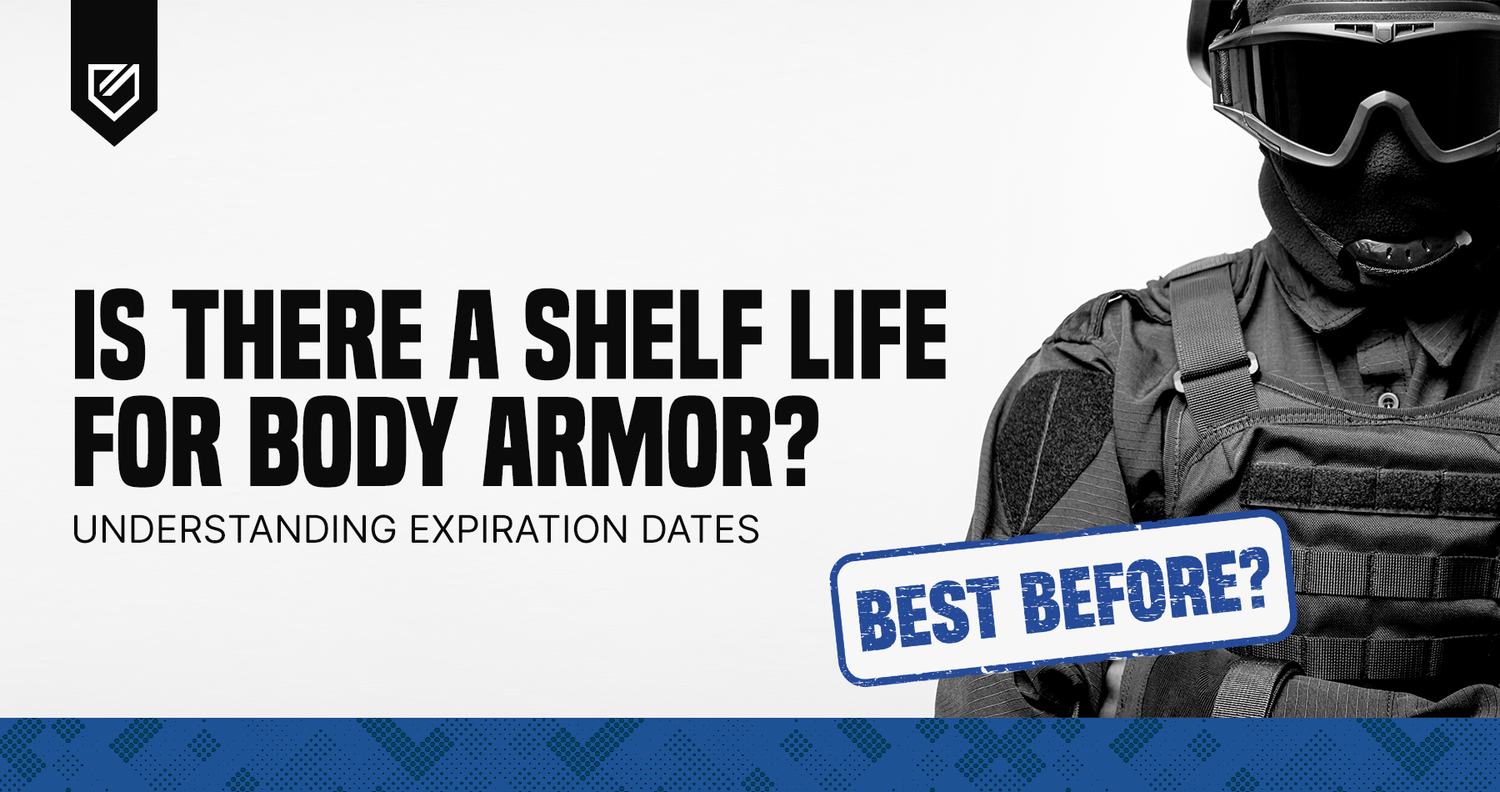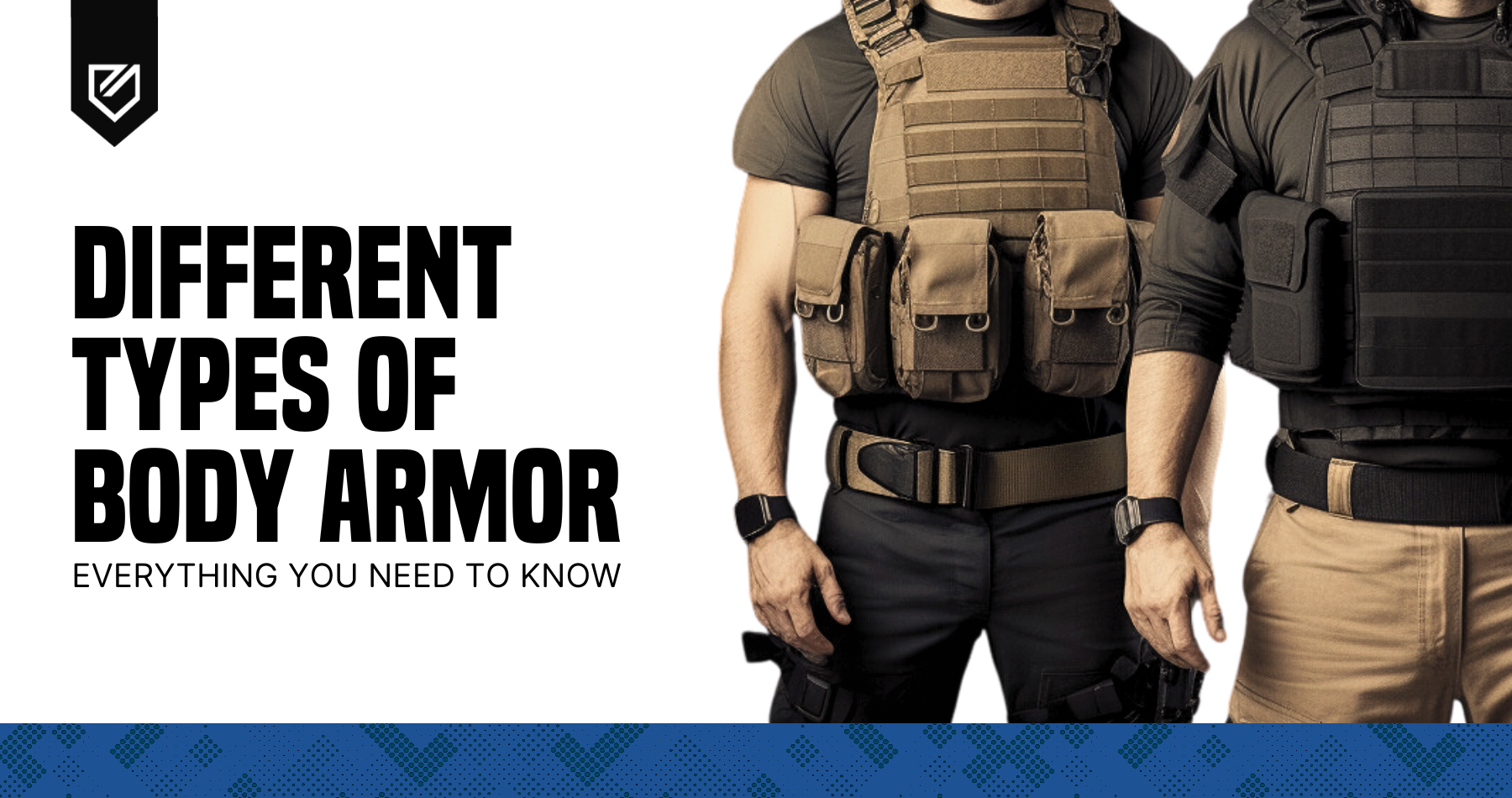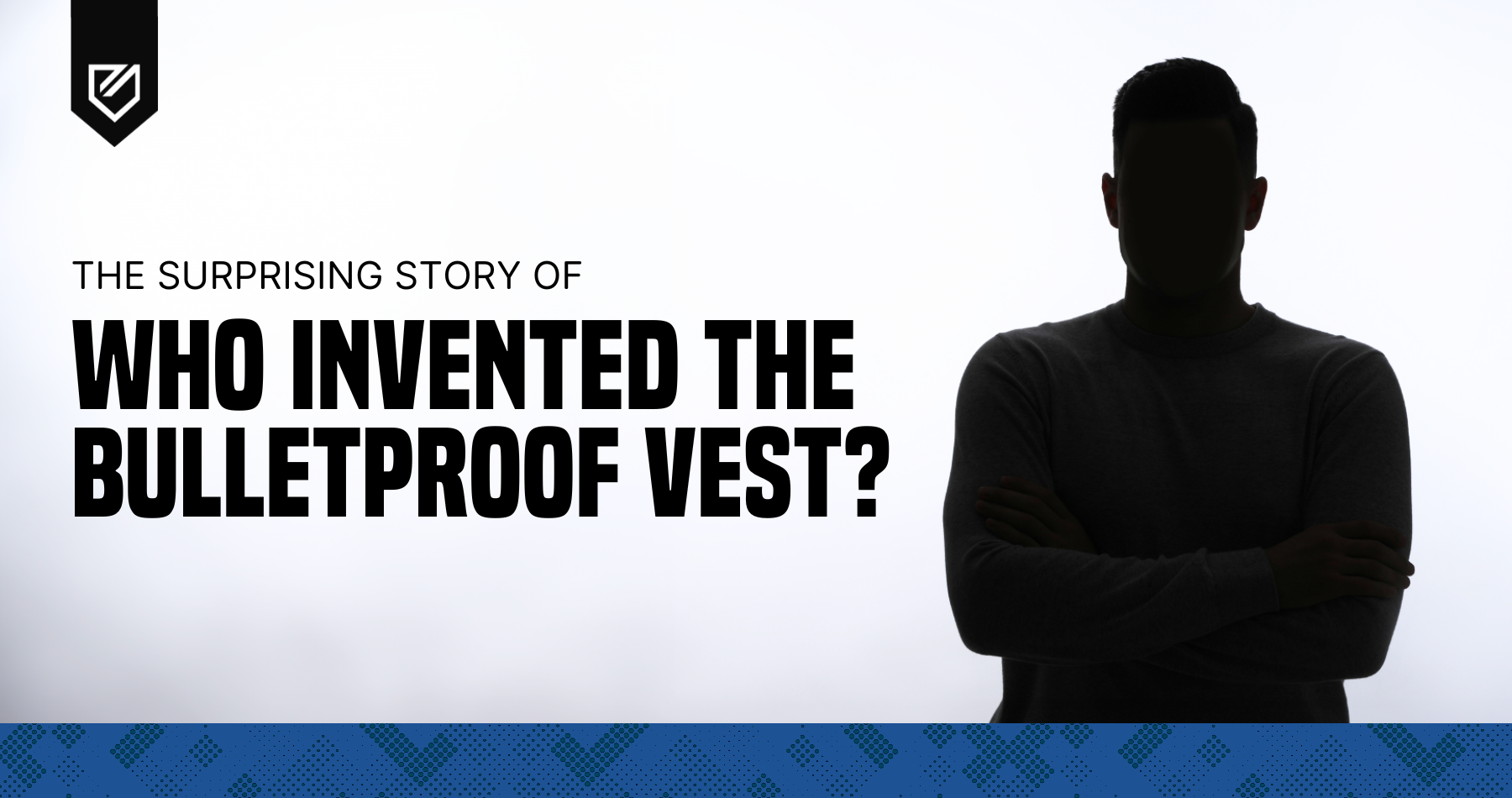Did you know that like perishable food and medicine, body armor also comes with an expiration date? While it doesn't spoil or go rancid, the materials used in its construction can degrade over time, affecting its performance when you need it the most.
This article delves into the concept of shelf life for body armor, explaining how to decipher expiration dates and understand their impact on your safety gear's effectiveness.
Why You Should Know Your Body Armor’s Expiration Date
Knowing your body armor's expiration date is not just a matter of adhering to regulations or guidelines; it's about ensuring the highest level of protection in situations where it's most needed.

When body armor starts to degrade, its ability to perform this essential function diminishes. This is a risk that no one—be it a police officer, soldier, or a concerned civilian—can afford to take.
Operating with expired or compromised body armor can result in serious injury or even loss of life when confronted with a threat that the armor is no longer equipped to handle.
Should you engage in a risky operation or venture into an unsafe area, you'll want to be absolutely certain that your body armor is in optimal condition. By keeping track of its expiration date and maintaining it accordingly, you add an extra layer of security that enhances your chances of walking away unharmed in life-threatening situations.
Factors That Influence Body Armor Expiration
Contrary to popular belief, body armor doesn't come with a set expiration date like perishable food. However, there are several factors that can affect its longevity:
Material Degradation
Different types of body armor utilize various materials—Kevlar, ceramic, steel, among others—to provide protection. Over time, each material has its own susceptibility to environmental factors.
For example, a Kevlar vest stored in a humid and hot environment might experience a weakening of its fiber structure, reducing its effectiveness against bullets. Similarly, ceramic plates could become more brittle after prolonged exposure to sunlight.
An officer working in desert conditions might find that his ceramic armor loses integrity more quickly compared to someone operating in a temperate climate.
Frequency of Use
The amount of wear and tear from frequent usage is another critical factor affecting the lifespan of body armor.

Imagine two bulletproof vests: one is used daily by a patrol officer in an urban environment, while the other is worn occasionally by a reserve officer.
The patrol officer's armor is subjected to constant friction, bending, and sweating, causing a quicker deterioration of the protective layers. In contrast, the reserve officer's armor would likely have a longer useful lifespan due to its less frequent usage.
Physical Damage
Physical damage to body armor is a direct way to compromise its effectiveness, even if the damage isn't immediately visible. For instance, if a soldier's body armor has been struck by shrapnel or a bullet, its structural integrity could be jeopardized, even if it succeeded in stopping the threat.
Similarly, law enforcement officers involved in physical altercations might not notice small cuts or punctures on their armor from sharp objects like knives or glass. Such unnoticed damage could make the body armor less effective in stopping a bullet or reducing blunt force impact during future engagements.
How to Determine the Body Armor Expiration Date
Manufacturers often provide guidelines on the expected lifespan of body armor, which usually ranges from 5 to 7 years. You should always refer to this information as a baseline.
Regular Inspection
Conducting regular checks for signs of wear and tear can help identify when it's time to replace your armor. Look for frayed edges, discoloration, or other indications of material breakdown.
Professional Assessment

Some companies offer inspection services that can give you a more precise idea of the remaining lifespan of your body armor. This can be a good way to ensure that you are adequately protected.
Ensuring the Reliability of Your Body Armor
To answer the question—does body armor expire?—it's essential to recognize that while there's no explicit expiration date, multiple factors contribute to its deterioration. The material from which it's made, the frequency with which it's used, and any incurred physical damage all play pivotal roles in determining its effective lifespan.
Being proactive about understanding these variables is more than a good practice; it's a necessity for ensuring your safety. Knowing the factors that influence the body armor expiration date allows you to make timely decisions on inspections, maintenance, or replacements. In high-stakes scenarios where your life may be on the line, the state of your body armor should be the least of your worries.
Don't wait for a crucial moment to realize your body armor is less effective than you thought. Regularly inspect it, adhere to manufacturer guidelines, and consider professional assessments to confirm its condition. Your safety is paramount—make sure your body armor can deliver when it counts.




Leave a comment
This site is protected by hCaptcha and the hCaptcha Privacy Policy and Terms of Service apply.